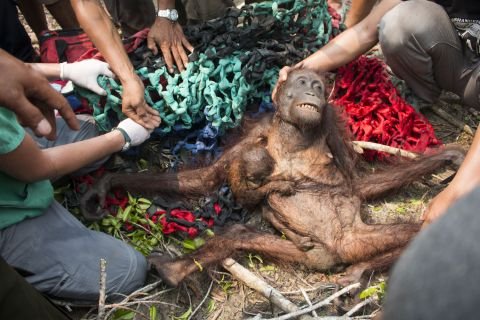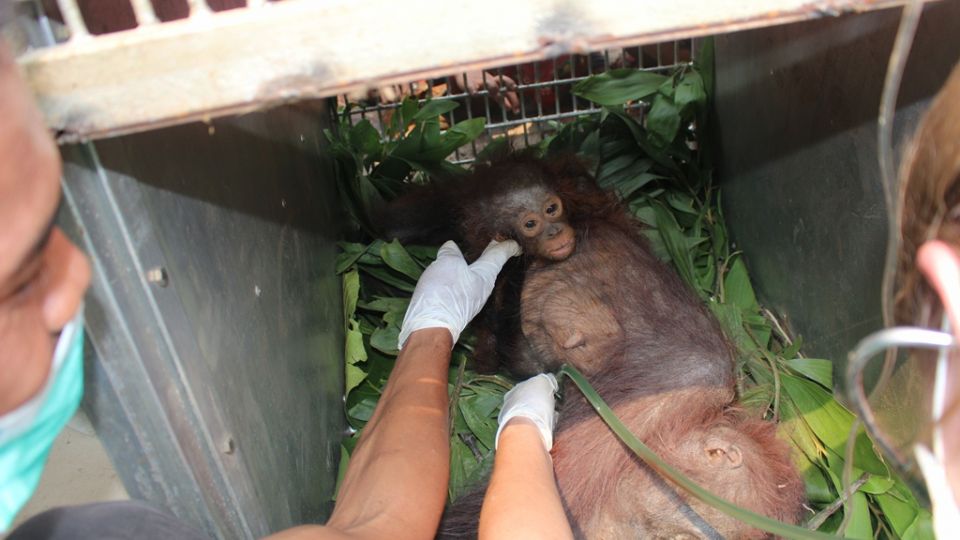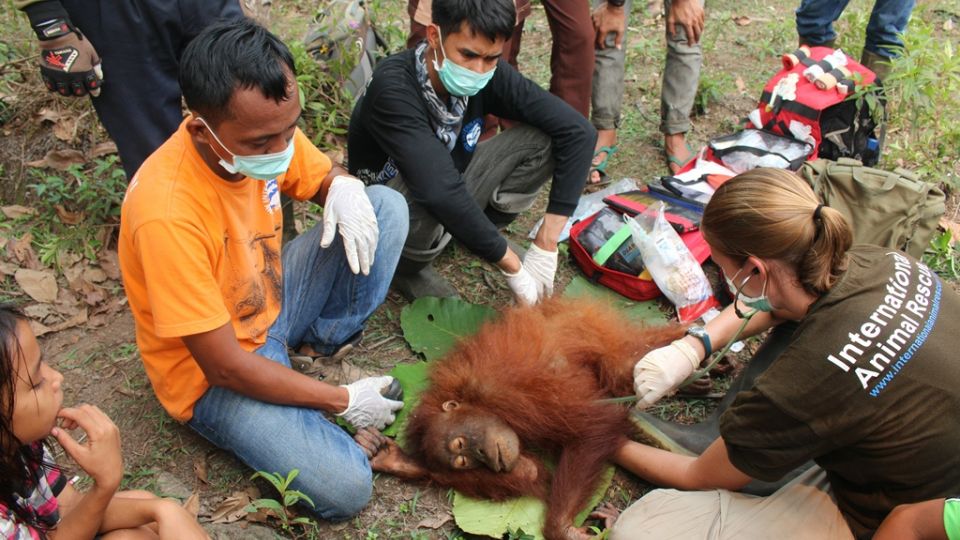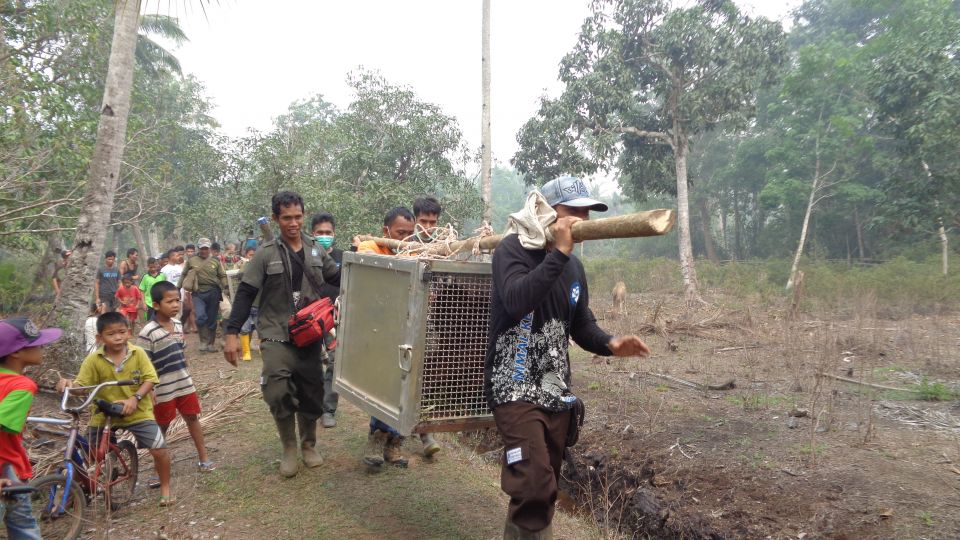
As forest fires in Indonesia continue to burn out of control, International Animal Rescue’s teams in West Kalimantan are risking their lives to save orangutans stranded in the region.
The situation has been worsened by the fact that the fires have spread to protected areas such as national parks and conservation areas. As a result of rapid deforestation and oil palm development in recent years, unprotected habitats have been under huge pressure, putting orangutans at serious risk, but now that protected areas are also threatened there is no longer any safe refuge for orangutans.
Fires are currently affecting two protected areas with the largest orangutan populations in Ketapang, in Sungai Putri and Pematang Gadung landscapes. In Pematang Gadung where IAR runs a conservation project, the community patrol team are fighting the fires using portable pumps and water sprayers. The team urgently needs more equipment and manpower to help fight the fires and IAR has made an urgent appeal for funds on its social media pages.
Karmele Llano Sanchez, Programme Director for IAR Indonesia, says: “We have put a great deal of effort into preserving orangutan habitats and thought the orangutans in protected areas would be safe, but now we find they are still in danger. Orangutans and other animals are being burnt alive, left without food and starving to death, or being pushed out of their habitat into plantations and villages where they are at risk of being killed. We don’t know how many orangutans we have lost in this crisis but we know that this is going to be devastating for orangutan populations in the wild and could mean that orangutans will soon be closer to extinction.
Since the fire crisis first began some three months ago IAR’s teams in Ketapang have rescued 14 orangutans, some directly from fires or from the smouldering forests. The teams are following and monitoring at least five more wild orangutans that are at serious risk in four different locations and these animals are also likely to need rescuing.
Mama Anti and baby
Among the animals recently rescued by IAR’s team were mother Anti and her baby whose presence had been reported by a local villager. The previous evening some of the villagers had thrown things at the terrified mother and then attempted to tie her up. Fortunately the team was able to capture them both after anaesthetising the mother with her young infant clinging tightly to her.
During the rescue the team was working in the midst of a large crowd of more than 100 local people. It was explained to them that there is a team to call for help if they encounter a wild orangutan in the future. As the mother began to recover from sedation, the pair was loaded up and transported to the conservation area of palm oil company PT Kayung Agro Lestari (PT KAL) where they would be monitored in the forest for the next week or two. Upon release from the transport cage, the mother climbed directly up a tree and started to forage. They are still being monitored by the oil palm company’s conservation team who report that both are adapting well.
Mama Fitri and infant Fajar
Also among the rescues were a mother and independent male infant who had sought refuge from the burning forests in a rubber tree plantation. The team named the mother Fitri and the young juvenile Fajar.
The mother was darted first and captured quickly. The juvenile took much longer to dart as he was fast and high in the trees, but eventually it was a success. Once they had been anaesthetised, both mother and youngster were assessed to be in fairly good condition but both had burns on their feet indicating that at some point they had been forced to cross a field still full of burning embers.
Both recovered well, although they were truly wild and became stressed when humans were close by. The team quickly got on their way to the release site in PT KAL, where the pair was to be released and followed by a monitoring team to make sure all
“This is a global environmental crisis and it is already considered by experts as the worst man-made ecological disaster of the century which will affect the lives of people the world over,” says Sanchez. “I fear that in terms of the orangutans, the worst is yet to come. And if serious action isn’t taken soon to stop the fires, it will simply be too late.”


